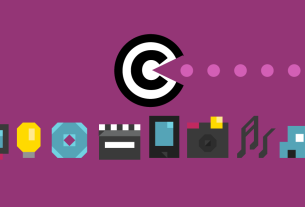U.S. sanctions on Syria have for several decades not only restricted trade and financial transactions, they’ve also severely limited Syrians’ access to digital technology. From software development tools to basic cloud services, Syrians were locked out of the global internet economy—stifling innovation, education, and entrepreneurship.
EFF has for many years pushed for sanctions exemptions for technology in Syria, as well as in Sudan, Iran, and Cuba. While civil society had early wins in securing general licenses for Iran and Sudan allowing the export of communications technologies, the conflict in Syria that began in 2011 made loosening of sanctions a pipe dream.
But recent changes to U.S. policy could mark the beginning of a shift. In a quiet yet significant move, the U.S. government has eased sanctions on Syria. On May 23, the Treasury Department issued General License 25, effectively allowing technology companies to provide services to Syrians. This decision could have an immediate and positive impact on the lives of millions of Syrian internet users—especially those working in the tech and education sectors.
A Legacy of Digital Isolation
For years, Syrians have found themselves barred from accessing even the most basic tools. U.S. sanctions meant that companies like Google, Apple, Microsoft, and Amazon—either by law or by cautious decisions taken to avoid potential penalties—restricted access to many of their services. Developers couldn’t access GitHub repositories or use Google Cloud; students couldn’t download software for virtual classrooms; and entrepreneurs struggled to build startups without access to payment gateways or secure infrastructure.
Such restrictions can put users in harm’s way; for instance, not being able to access the Google Play store from inside the country means that Syrians can’t easily download secure versions of everyday tools like Signal or WhatsApp, thus potentially subjecting their communications to surveillance.
These restrictions also compounded the difficulties of war, economic collapse, and internal censorship. Even when Syrian tech workers could connect with global communities, their participation was hampered by legal gray zones and technical blocks.
What the Sanctions Relief Changes
Under General License 25, companies will now be able to provide services to Syria that have never officially been available. While it may take time for companies to catch up with any regulatory changes, it is our hope that Syrians will soon be able to access and make use of technologies that will enable them to more freely communicate and rebuild.
For Syrian developers, the impact could be transformative. Restored access to platforms like GitHub, AWS, and Google Cloud means the ability to build, test, and deploy apps without the need for VPNs or workarounds. It opens the door to participation in global hackathons, remote work, and open-source communities—channels that are often lifelines for those in conflict zones. Students and educators stand to benefit, too. With sanctions eased, educational tools and platforms that were previously unavailable could soon be accessible. Entrepreneurs may also finally gain access to secure communications, e-commerce platforms, and the broader digital infrastructure needed to start and scale businesses. These developments could help jumpstart local economies.
Despite the good news, challenges remain. Major tech companies have historically been slow to respond to sanctions relief, often erring on the side of over-compliance to avoid liability. Many of the financial and logistical barriers—such as payment processing, unreliable internet, and ongoing conflict—will not disappear overnight.
Moreover, the lifting of sanctions is not a blanket permission slip; it’s a cautious opening. Any future geopolitical shifts or changes in U.S. foreign policy could once again cut off access, creating an uncertain digital future for Syrians.
Nevertheless, by removing barriers imposed by sanctions, the U.S. is taking a step toward recognizing that access to technology is not a luxury, but a necessity—even in sanctioned or conflict-ridden countries.
For Syrian users, the lifting of tech sanctions is more than a bureaucratic change—it’s a door, long closed, beginning to open. And for the international tech community, it’s an opportunity to re-engage, responsibly and thoughtfully, with a population that has been cut off from essential services for too long.



